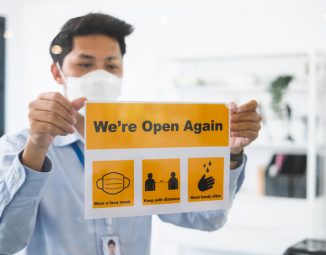Paid Sick Leave Is a Reality In Philadelphia: How Will It Affect Your Business?
Philadelphia has joined the 16 cities and three states that require private employers to provide employees with mandatory paid sick leave. The city ordinance, which was signed into law by Mayor Nutter on February 12, 2015, affects employers that employ at least 10 employees for 40 or more weeks in a calendar year. Mayor Nutter vetoed similar legislation in 2011 and 2013 based upon concerns that employers had yet to recover from the recession. The ordinance takes effect on May 13, 2015.
The following are some of the key provisions that will go into effect on May 13, 2015:
- How much paid sick leave time must be given? Employees must be allotted one hour of paid sick leave for every 40 hours worked in Philadelphia, for a maximum of up to 40 hours of paid sick leave annually.
- What can paid sick leave be used for? Paid sick leave may be used for personal illness; caring for a sick family member; or absences due to domestic abuse, sexual assault or stalking.
- Does it have to be taken in daily increments? Paid sick leave may be used in hourly or daily increments (or the smallest increment an employer’s payroll system uses to account for absences or use of other time).
- When can an employee first use their paid sick leave? Employees may use accrued paid sick leave once 90 calendar days have passed from their date of hire.
- Is there carry over required? Accrued paid sick leave must be carried forward to the next calendar year, unless the employer’s own leave policy provides for at least 40 hours of paid sick leave at the beginning of each calendar year.
- Do I have to tell my employees about this? Employers must provide employees with notice of their rights to paid sick leave, either by supplying a notice personally or posting one, and by including that information in an employee handbook.
- Do I have to keep track of accruals? Employers must implement a record keeping system that tracks the amount of sick time that is accrued and used.
What about payout upon separation? Employers are not required to reimburse employees, at the time of separation, for unused paid sick leave accrued under the ordinance.
What if I already provide generous paid time off to employees? Employers that maintain more generous paid time off policies are not required to provide additional paid sick leave, so long as employees can utilize the paid time off for the same purposes and under the same conditions as described in the ordinance.
Who is a covered “employee”? The ordinance affords unpaid sick leave to all individuals who work within the geographic boundaries of Philadelphia for at least 40 hours per year, exclusive of seasonal workers, adjunct professors, temporary employees (less than six months), interns, state and Federal employees, and employees covered by a collective bargaining agreement.
What employees count towards the 10 employee threshold? In order to determine whether an employer meets the 10 employee threshold, employers must count “all persons performing work for compensation on a full-time, part-time or temporary basis.” The ordinance does not specify that the 10 employees must all be employed in Philadelphia. Therefore, for example, it appears to require a regional employer, which employs 10 employees in Bucks County and employs a single employee in Philadelphia, to provide that one employee in Philadelphia with paid sick leave.
What is a “chain establishment”? The ordinance is specifically drafted to cover “chain establishments.” It defines a “chain establishment” as an establishment doing business under the same trade name used by 15 or more establishments, regardless of whether such other establishments are located in Philadelphia and regardless of the type of ownership of each individual establishment. Any such “chain establishment” must provide paid sick leave to all of its employees working in Philadelphia regardless of the number of employees in that establishment. Accordingly, the plain language of the ordinance dictates that a 20 location regional franchise with a single location in Philadelphia must provide its Philadelphia employees with paid sick leave, even if there are only two employees at the Philadelphia location.
What if the employee works in Philadelphia but also outside of the city? Critics of the ordinance point to the logistical burden that it creates for employers with employees that spend only part of their work week in Philadelphia, as employers must now monitor the amount of time that each employee spends in the City of Philadelphia. We are hopeful that additional guidance on this issue (and others) will be forthcoming from the agency designated to enforce this ordinance; however, it might be optimistic to expect that interpretive regulations will be published before the May 13, 2015 effective date.
Can I be sued for violating this ordinance? Yes. It is important to evaluate the new ordinance’s requirements and consult with local employment counsel to determine the impact on your business, as a violation could be costly. In addition to imposing civil fines and penalties, the ordinance also creates a private right of action for aggrieved employees. A prevailing employee may recover the full amount of any unpaid sick time which was denied, as well as “any wages and benefits lost or other damages suffered resulting from the employer’s violation,” up to $2,000 in liquidated damages, and attorney fees.
Does it protect against retaliation? The ordinance explicitly prohibits retaliation or discrimination against an employee for his/her exercise of rights under it. Interestingly, the ordinance creates a “rebuttable presumption of unlawful retaliation” when an employer takes an adverse action against an employee within 90 days of the employee filing a claim under the ordinance, opposing a violation of the ordinance, or participating in an investigation/prosecution of a violation.
For further reading, a copy of the ordinance can be found here.



